Friedrich Nietzsche
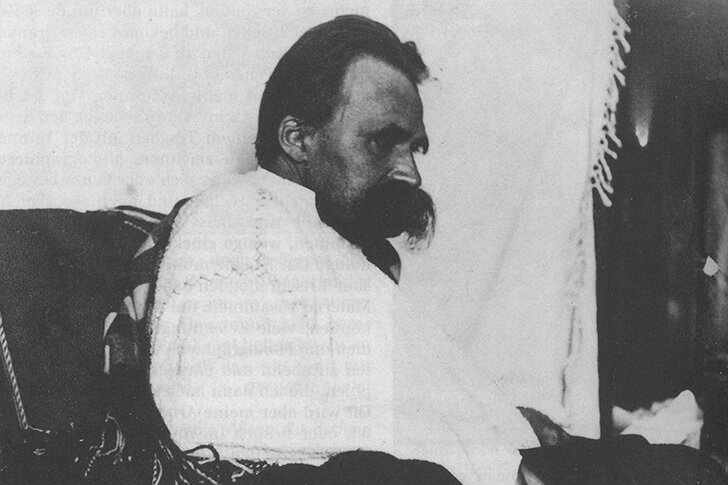
Friedrich Nietzsche (1844-1900) was the kind of guy who questioned everything. He was a German philosopher, cultural critic, and poet who believed that traditional morality and Western thought were holding us back. He famously declared that "God is dead," and suggested that we should all strive to become "superman."
Nietzsche's radical ideas may have raised a few eyebrows in his time, but they've had a lasting impact on modern philosophy and cultural theory. Even though some people still think he was a bit of a wild card, there's no denying that Nietzsche's bold thinking and boundary-pushing ideas have left their mark on history.
Ernest Hemingway
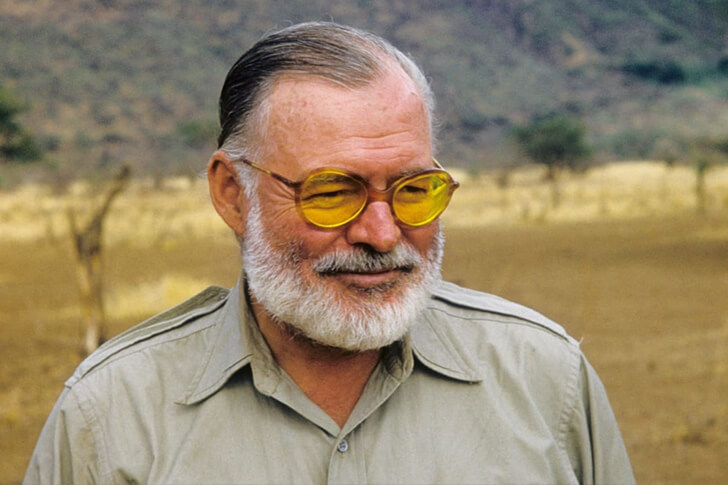
Ernest Hemingway was an iconic American novelist, short-story writer, and journalist who is widely regarded as one of the greatest writers of the 20th century. He was born in 1899 in Illinois, USA, and gained fame for his minimalist writing style and his portrayal of disillusionment and loss in the aftermath of World War I.
Hemingway won the Nobel Prize in Literature in 1954 for his contribution to the development of modern literature. His greatest accomplishments include works such as "The Old Man and the Sea," "A Farewell to Arms," and "The Sun Also Rises," which have become classics of American literature.
Sigmund Freud
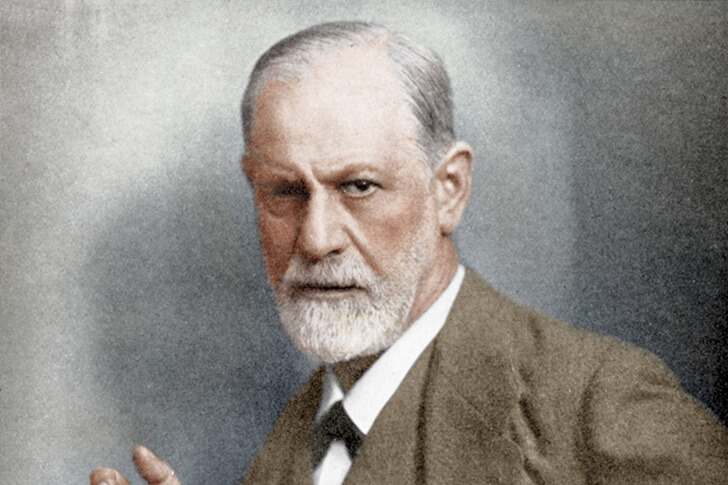
Sigmund Freud was an Austrian neurologist and the founder of psychoanalysis, a method for treating mental illness and understanding the human psyche. His greatest accomplishment was developing the theory of the unconscious mind, which holds that many of our thoughts and behaviors are driven by unconscious desires.
Freud also introduced the concepts of the id, ego, and superego, which are still used to describe the different parts of the human psyche. His theories were groundbreaking and controversial, as they challenged prevailing views on the nature of the mind and the causes of mental illness. Freud's work has had a lasting impact on psychology, and he remains a fascinating historical figure.
Pablo Picasso
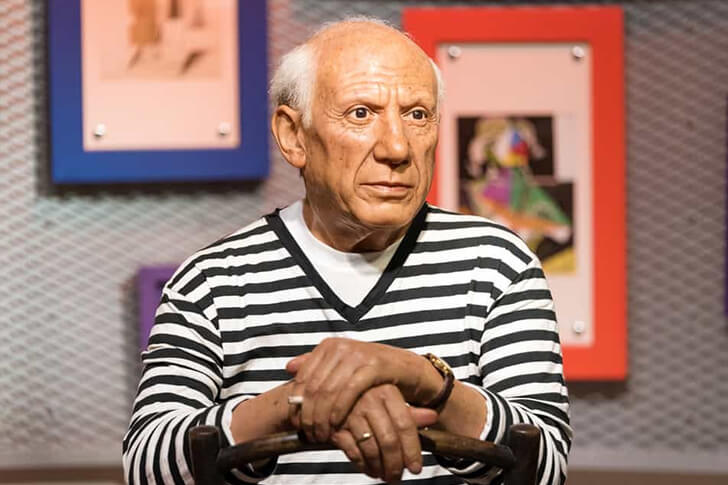
Pablo Picasso was a renowned Spanish artist and one of the most influential figures in the development of modern art. He was born in 1881 in Malaga, Spain, and is best known for co-founding the Cubist movement and pioneering a revolutionary new style of art that challenged traditional techniques and perspectives.
Picasso's greatest accomplishments include works such as "Les Demoiselles d'Avignon," "Guernica," and "The Weeping Woman," which have become iconic pieces of 20th-century art. He is revered as a historical figure for his creative genius, his role in shaping modern art, and his great influence on subsequent generations of artists.
John Quincy Adams
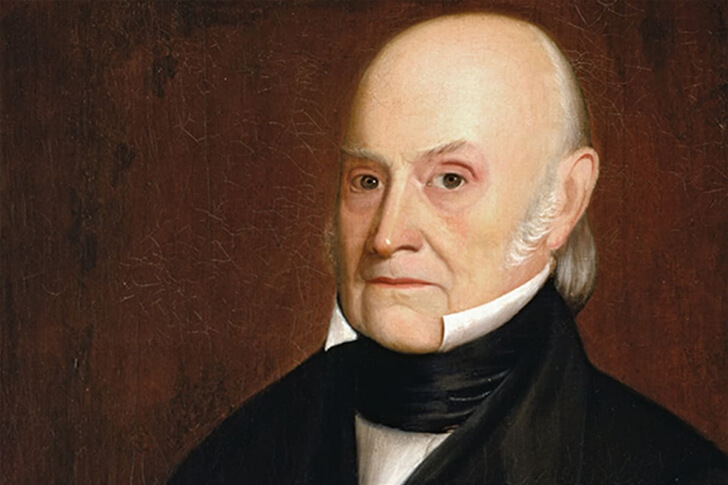
John Quincy Adams was the sixth president of the United States, serving from 1825 to 1829. He was known for his diplomatic and political service prior to his presidency, including his role as a senator, diplomat, and Secretary of State. One of his greatest accomplishments was negotiating the end of the War of 1812, which helped solidify peace between the United States and Great Britain.
He was also a vocal advocate for abolition and worked to end slavery in the United States. Adams is greatly respected for his dedication to public service, his commitment to ending slavery, and his diplomatic achievements that helped shape American foreign policy.
Jefferson Davis
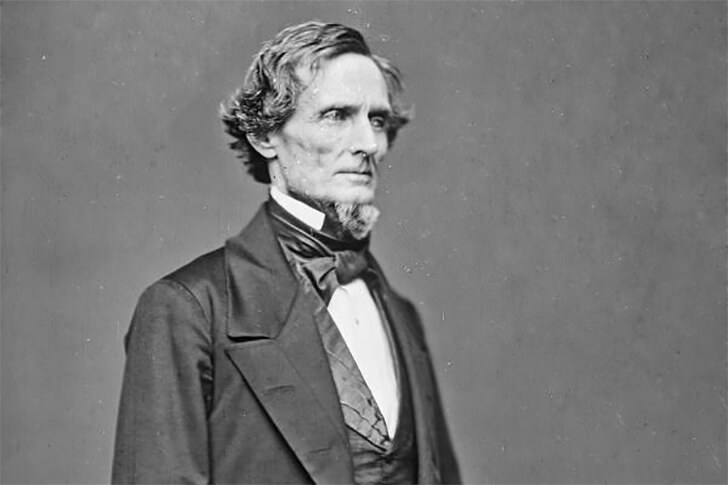
Jefferson Davis was an American politician who served as the President of the Confederate States of America during the American Civil War from 1861 to 1865. Prior to his presidency, he had a distinguished career in public service, serving as a United States Senator and Secretary of War under President Franklin Pierce.
Davis is best known for his leadership of the Confederacy during the Civil War and his efforts to maintain the Southern states' right to secede from the Union. While his legacy remains controversial due to his defense of slavery, Davis is regarded as an important figure in American history for his role in shaping the country's political and social landscape during a tumultuous period.
Geronimo
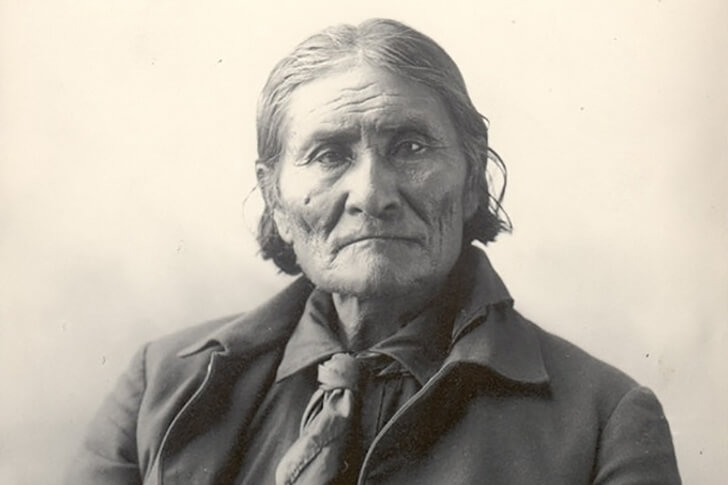
Geronimo was a prominent leader and warrior of the Chiricahua Apache tribe, known for his bravery and tenacity in fighting against the U.S. government and Mexican forces in the late 19th century. He led his people through several conflicts, including the Apache Wars, and became a symbol of resistance against the encroachment of white settlers and the loss of Native American land and culture.
Despite being outnumbered and outgunned, Geronimo was able to elude capture for many years and became a legendary figure in American history. His unwavering commitment to his people and his fighting spirit have made him a respected and admired historical figure, representing the struggle for indigenous rights and sovereignty.
Edgar Allan Poe
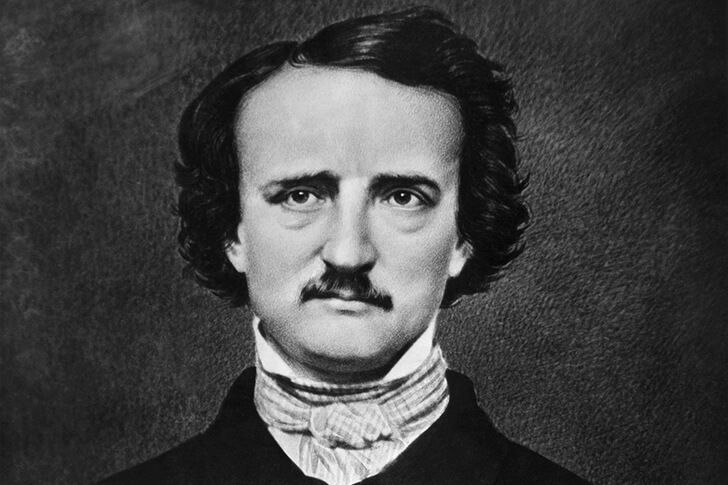
Edgar Allan Poe was an American writer and poet who lived from 1809 to 1849. He is widely considered to be one of the most significant figures in American literature, known for his gothic and macabre tales and poems such as "The Raven" and "The Tell-Tale Heart." Poe's works explore the depths of the human psyche and deal with themes such as madness, obsession, and death.
His influence on modern literature and popular culture is immense, with his legacy inspiring countless writers, artists, and filmmakers. Poe's impact on American literature and his contribution to the development of the short story form makes him a great historical figure.
Martin Van Buren
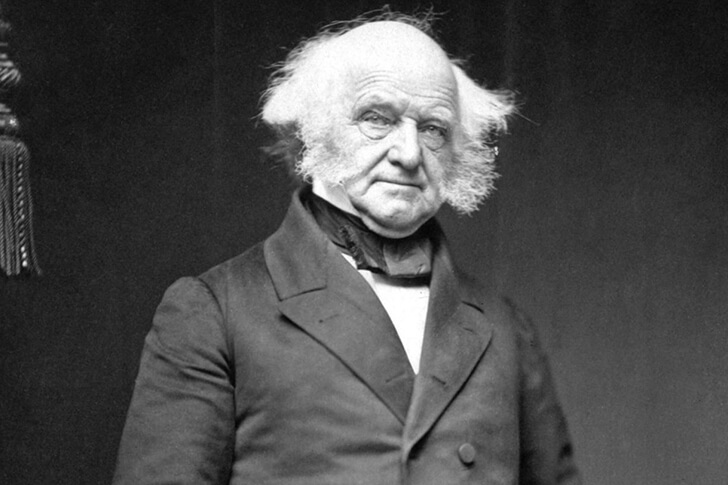
Martin Van Buren was an American statesman who served as the 8th President of the United States from 1837 to 1841. He was born in Kinderhook, New York in 1782, the son of a farmer and innkeeper. Van Buren received a formal education and practiced law before entering politics.
He played a pivotal role in the formation of the Democratic Party and was a staunch advocate for free trade and the modernization of the American economy. Van Buren's political career was marked by success, including serving as Governor of New York, United States Senator, and Secretary of State under President Andrew Jackson.
Sir John Herschel
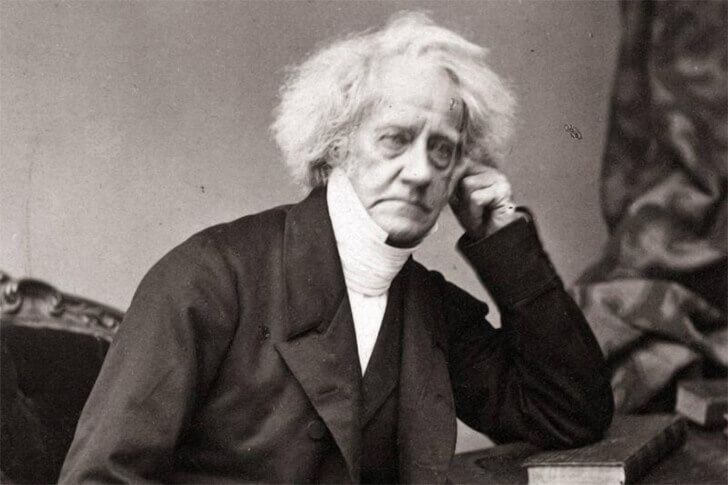
Sir John Herschel is a highly respected historical figure, celebrated for his remarkable achievements in the fields of astronomy, chemistry, and photography. He discovered and cataloged over 5000 nebulae and star clusters, earning him widespread admiration and veneration in the scientific community.
Herschel also made significant contributions to photography, including the development of the cyanotype process, which continues to be used to this day. As a fellow of the Royal Society, his work and discoveries continue to be regarded with great reverence by scientists and scholars around the world, cementing his place in history as an exceptional and revered figure.
Charles Darwin
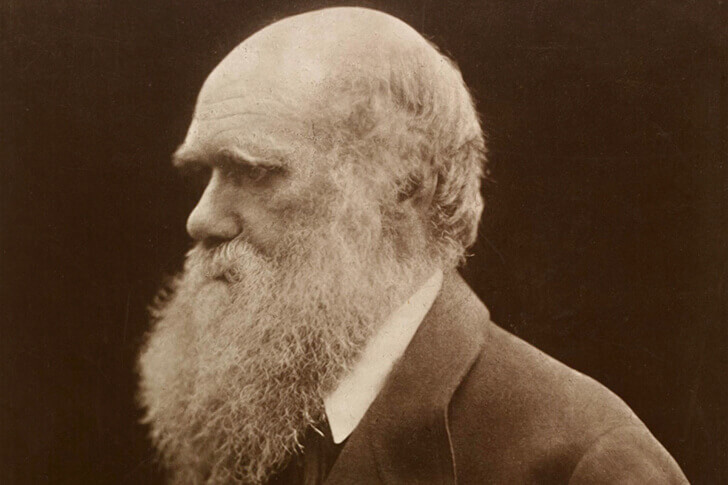
Charles Darwin was a brilliant naturalist and biologist who shook up the scientific world with his revolutionary ideas. In 1859, he published "On the Origin of Species," which challenged the traditional beliefs about the origins of life and presented his groundbreaking theory that all species have evolved over time from common ancestors through natural selection.
Darwin's work had a profound impact on scientific thinking and inspired heated debates about the nature of humanity and our place in the world. Even today, his legacy continues to shape our understanding of the natural world and inspire scientific inquiry. Simply put, he was a genius who changed the game for science.
Theodore Roosevelt
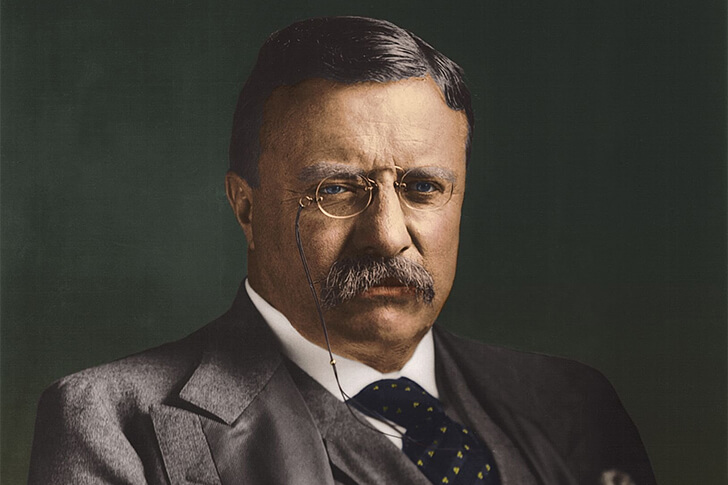
Theodore Roosevelt was the 26th president of the United States, serving from 1901 to 1909. He was a champion of progressive policies, and his greatest accomplishments include conservation efforts to preserve America's natural resources, breaking up big monopolies, and expanding workers' rights.
He was also known for his foreign policy, including the construction of the Panama Canal and his efforts to broker peace between Russia and Japan, earning him the Nobel Peace Prize in 1906. Roosevelt's bold leadership and energetic personality made him a beloved and influential figure in American history. He embodied the idea of the "strenuous life" and his legacy continues to inspire all generations of Americans.
Charles Dickens
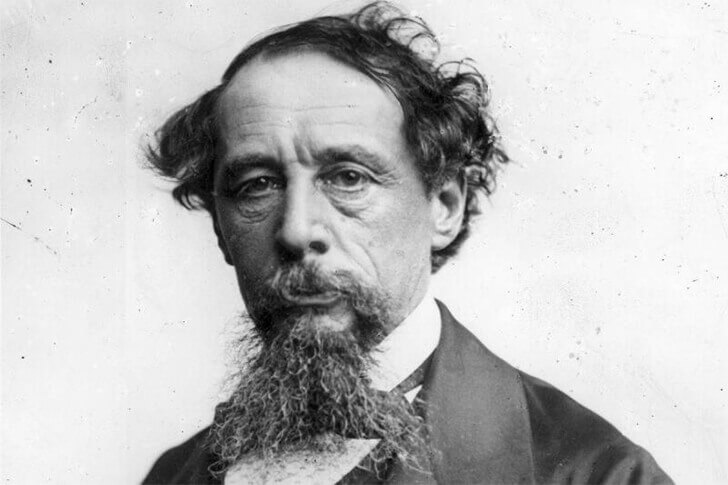
Charles Dickens was an English novelist and social critic whose works are considered some of the greatest in English literature. He is best known for his novels, such as "Oliver Twist," "A Tale of Two Cities," and "Great Expectations," which often highlighted social issues such as poverty and class inequality.
His writing helped bring attention to the struggles of the working class during the Industrial Revolution and inspired social reform movements. Dickens was also a gifted storyteller, with his colorful characters and vivid descriptions captivating readers of all ages. His legacy as one of the greatest writers in the English language continues to be celebrated today.
Grigori Efimovich Rasputin
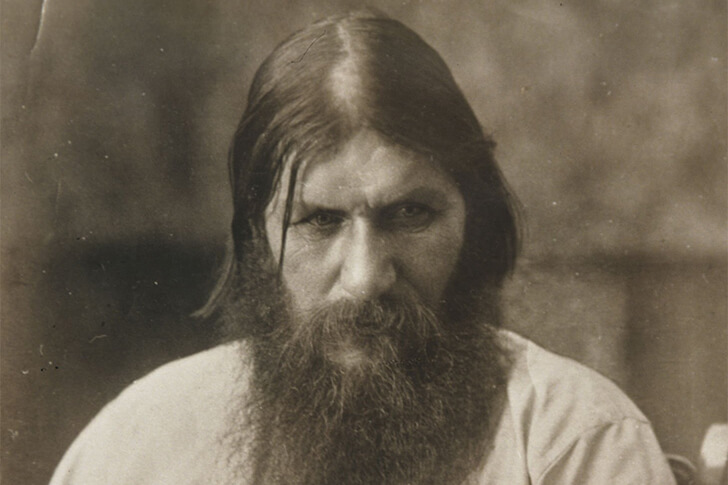
Grigori Efimovich Rasputin was a Russian mystic and advisor to the Romanov family, the last imperial family of Russia. He was known for the influence he had over the Tsar and Tsarina, who saw him as a holy man and trusted him implicitly. Also, he was famous for his charismatic personality and healing abilities.
Despite his controversial reputation, Rasputin played a significant role in the downfall of the Romanov dynasty, as his influence over the royal family was seen as a symbol of the corruption and incompetence of the ruling class. His murder in 1916 by members of the Russian nobility helped pave the way for the Russian Revolution.
Vincent Van Gogh
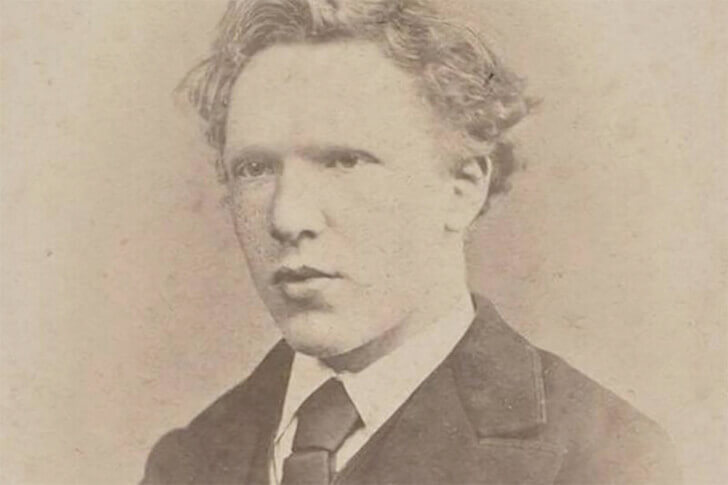
Vincent van Gogh was a Dutch post-impressionist painter who lived in the late 19th century. He is considered to be one of the greatest artists of all time, known for his unique style, emotional expressiveness, and bold use of color. Despite struggling with mental illness throughout his life, van Gogh produced a remarkable body of work, including more than 2,000 paintings and drawings.
His paintings are characterized by their vivid, swirling brushstrokes and intense colors, which convey a sense of movement and emotion. Today, van Gogh is recognized as a master of modern art, and his work continues to inspire and captivate art lovers around the world.
Robert Frost
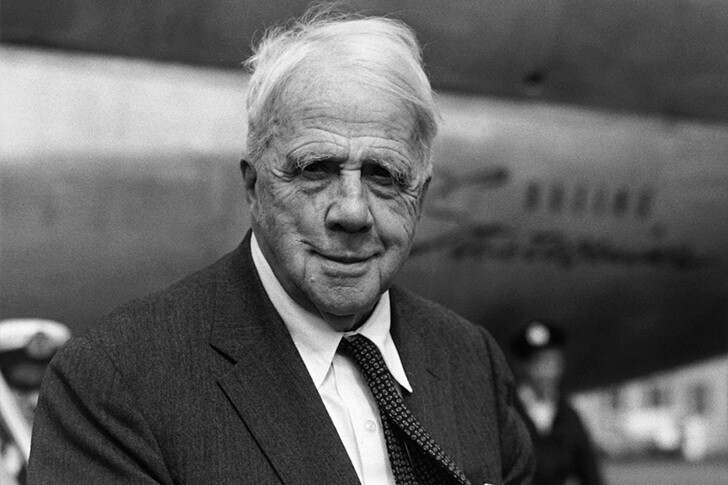
Robert Frost is an esteemed poet, known for his outstanding accomplishments in the field of American poetry. He is known for his distinct writing style that delves into complex themes of nature, rural life, and the human experience. His most notable achievements include the publication of over ten poetry collections, including his masterpiece, "The Road Not Taken," which is considered one of the most popular and recognized poems in American literature.
He received four Pulitzer Prizes for his contributions to poetry and was honored with numerous other accolades. Frost's impact on American poetry is widely recognized, cementing his position as an acclaimed and esteemed literary figure in history.
Annie Oakley
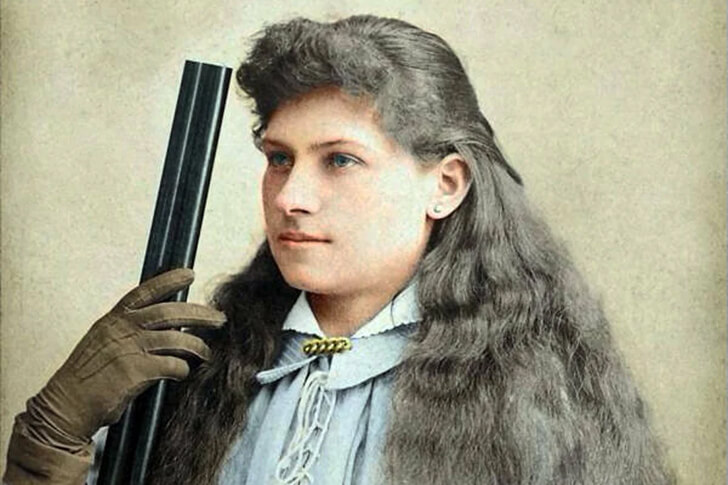
Annie Oakley, the renowned American sharpshooter, left a lasting legacy as an important figure in history. She gained worldwide acclaim for her exceptional shooting skills, which led to her performing in front of distinguished audiences such as Queen Victoria and President McKinley.
Her impressive feats served as a source of inspiration for women, breaking gender barriers and paving the way for female participation in traditionally male-dominated fields. As a feminist icon, she embodied the values of strength, perseverance, and determination, becoming a role model for generations to come. Today, her story continues to inspire and empower people, proving that with hard work and talent, anyone can achieve greatness.
Lewis Carroll
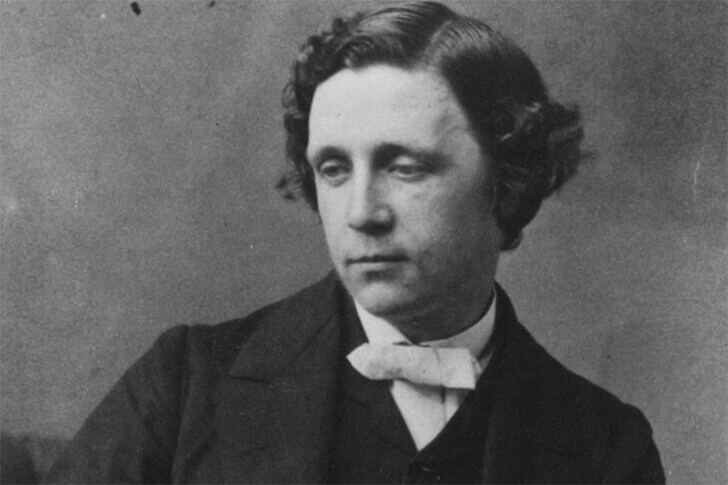
Lewis Carroll, whose real name was Charles Lutwidge Dodgson, was a gifted writer and mathematician of the Victorian era. He is best known for his timeless children's book "Alice's Adventures in Wonderland," which has captured the hearts and imaginations of readers young and old for generations.
However, his literary contributions extend far beyond this beloved classic. Carroll's clever wordplay, imaginative storytelling, and unique blend of fantasy and reality continue to inspire and entertain audiences today. His enduring legacy as a literary genius is a testament to his talent and creativity, making him one of the truly great writers of all time.
Frederick Douglass
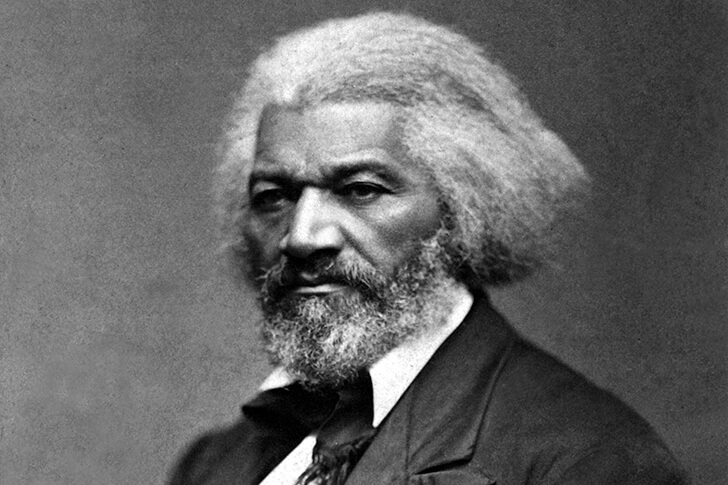
Frederick Douglass was an influential African American social reformer, abolitionist, orator, and writer in the 19th century. Born into slavery, he escaped to freedom and dedicated his life to the abolition of slavery and the pursuit of civil rights for African Americans. His powerful speeches and writings challenged the injustice and brutality of slavery and inspired many to join the anti-slavery movement.
He also fought for women's suffrage and was a strong advocate for education and equality. Douglass's remarkable life and work continue to inspire people around the world, and he is widely respected for his unwavering commitment to justice and freedom.
Dorothy Counts
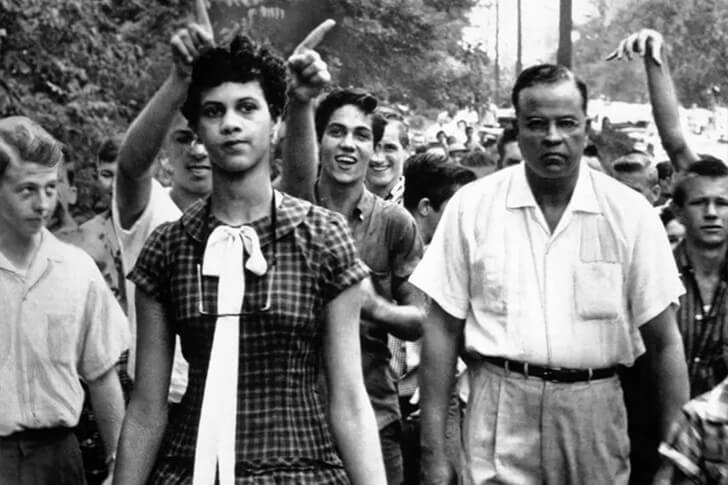
Dorothy Counts-Scoggins is an African-American civil rights pioneer who gained national attention for her bravery in the face of racist opposition. In 1957, at the age of 15, she became the first African-American student to integrate into Harding High School in Charlotte, North Carolina.
Her photograph, showing her being heckled and taunted by white students on her first day, became an iconic image of the Civil Rights Movement. Despite the abuse she faced, Counts remained steadfast and continued her education. Her courage helped pave the way for future generations of African-American students, and she is celebrated as a trailblazer and symbol of resistance against racial discrimination.
Karl Marx

Karl Marx was a German philosopher, economist, and social theorist. He is famous for his contributions to the development of communist theory, which aimed to create a classless society in which resources were distributed equitably. Marx's most significant accomplishment was his co-authorship of "The Communist Manifesto" with Friedrich Engels in 1848, which remains a seminal work of Marxist theory.
His analysis of the capitalist system and its exploitation of the working class has had a profound impact on political and economic thought, inspiring socialist movements worldwide. Marx's contributions to philosophy and social theory make him one of the most influential historical figures of the modern era.
Ulysses S. Grant
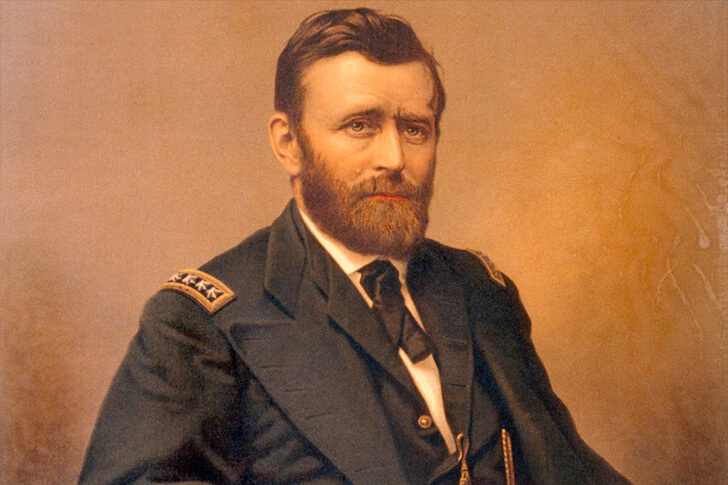
Ulysses S. Grant was an American general and statesman who served as the 18th President of the United States from 1869 to 1877. He is best known for his military leadership during the American Civil War, where he led Union forces to several crucial victories, including the siege of Vicksburg and the Battle of Chattanooga.
Grant's greatest accomplishment, however, was his role in securing the Union victory and bringing an end to the Civil War. He was also a strong advocate for civil rights and worked to protect the newly-freed slaves. His leadership in his presidency was marked by significant progress in economic and civil rights reforms.
Winston Churchill

Winston Churchill was a titan of his time, a man whose accomplishments were so vast and varied that even his famous wit couldn't do them justice. As a British politician, he led his country through its darkest hour, guiding it to victory over Nazi Germany with his unshakeable resolve.
And let's not forget his literary achievements - winning the Nobel Prize in Literature is no mean feat. All in all, he was a force to be reckoned with, a historical figure who proved that courage and determination can triumph over even the most daunting of challenges. In addition to his political and literary achievements, Churchill was also a talented painter.
Walt Whitman
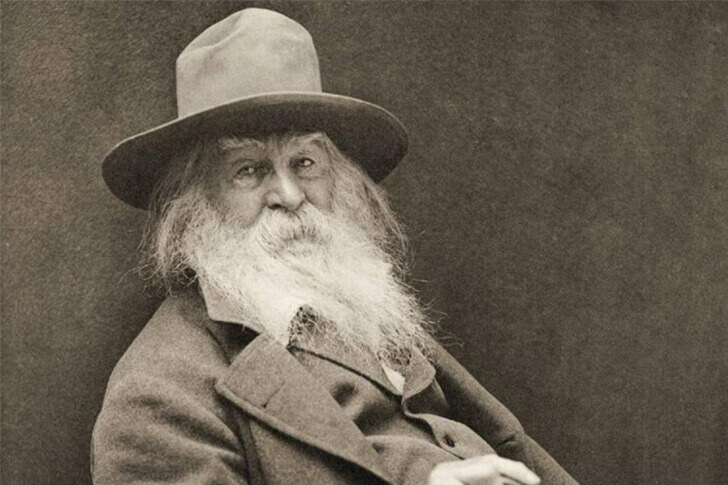
Walt Whitman was a legendary figure, renowned for his incredible poetry, essays, and journalism that shook up the literary scene. His greatest claim to fame was his famous collection of poems, "Leaves of Grass," which he kept adding to and refining like it was his personal masterpiece. It's considered one of the most significant works of American literature and a game-changer for free verse poetry.
Whitman's writing celebrated individualism, democracy, and the beauty of nature while pushing back against old-school morals and spirituality. To this day, people continue to admire him for his innovative approach to poetry and his lasting impact on American culture.
Edvard Munch
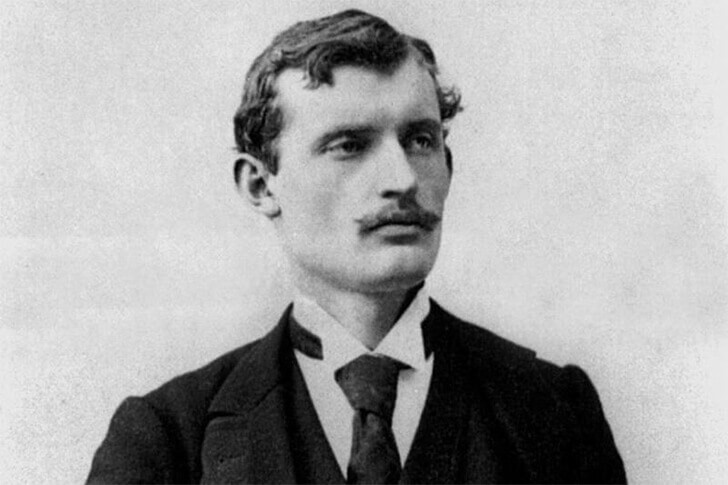
Edvard Munch was a Norwegian painter and printmaker who lived from 1863 to 1944. He is best known for his iconic painting "The Scream," which has become one of the most recognizable works of art in the world. Munch's greatest accomplishments, however, extend far beyond this single painting.
He was a pioneer of the Expressionist movement, and his emotionally charged depictions of the human condition had a profound impact on modern art. Munch's willingness to explore the darker aspects of the human experience, including illness, death, and anxiety, was revolutionary for its time, and his contributions to the development of modern art make him a revered historical figure.
Tsar Nicholas II
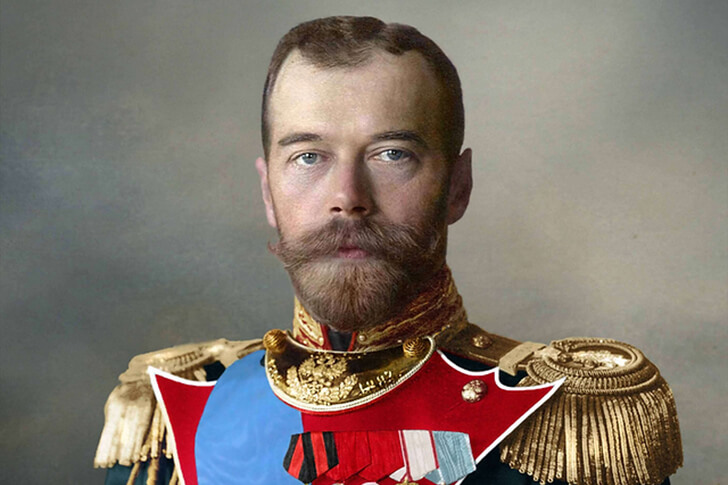
Tsar Nicholas II was the last emperor of Russia who reigned from 1894 to 1917. His reign was marked by significant events such as the Russo-Japanese War, Bloody Sunday, World War I, and the Russian Revolution which led to his abdication and eventual execution in 1918. Nicholas II's greatest accomplishment was the construction of the Trans-Siberian Railroad.
He was also known for his conservatism, autocracy, and opposition to political reform. Despite his shortcomings as a ruler, Nicholas II's life and reign provide a glimpse into the political and social changes that occurred during the early 20th century in Russia and his legacy remains a subject of debate among historians.
Harriet Beecher Stowe
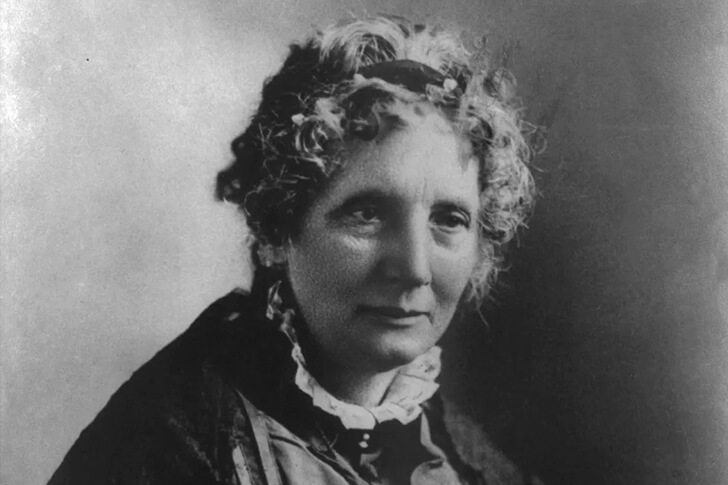
Harriet Beecher Stowe was an American abolitionist and author best known for her novel "Uncle Tom's Cabin," which exposed the harsh realities of slavery in the United States. Published in 1852, the book was widely popular and became an important tool for the abolitionist movement, helping to shift public opinion against slavery.
Stowe's passionate advocacy for the abolition of slavery and her powerful writing made her a significant figure in the history of the anti-slavery movement. Her efforts helped to raise awareness of the inhumane treatment of enslaved people and ultimately played a role in the Civil War and the end of slavery in the United States.
Nikola Tesla
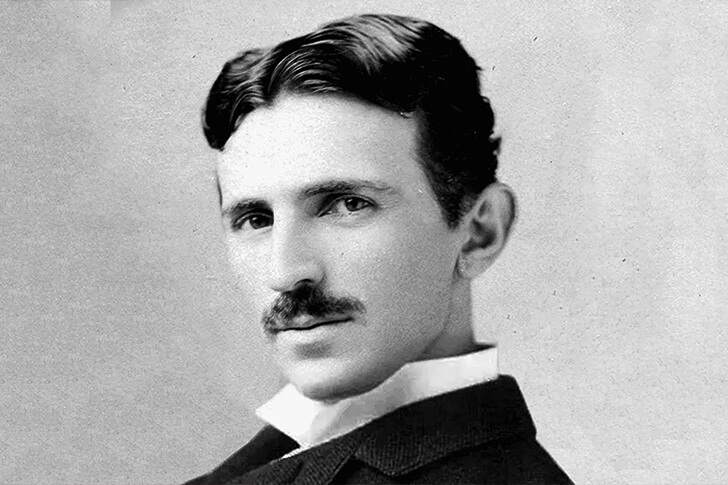
Nikola Tesla, a brilliant inventor, was known for his unique experiments and eccentric personality. He had a fondness for pigeons and was rumored to have fallen in love with one. Tesla also had a strong aversion to pearls and would refuse to speak to a woman wearing them.
His contributions to science, such as the Tesla coil and AC power, continue to impact the world today. Despite his peculiarities, Tesla remains an inspiration to unconventional thinkers and inventors. His innovative ideas and legacy continue to inspire and push the boundaries of what is possible in the world of science and technology.
The Wright Brothers
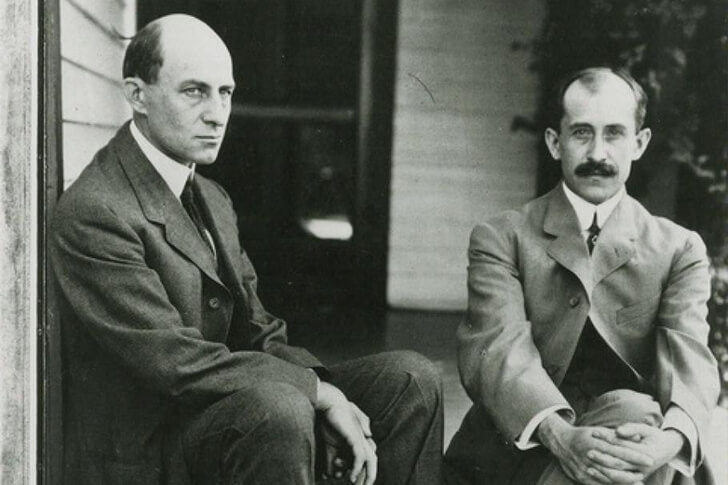
The Wright Brothers, Orville, and Wilbur are renowned for their groundbreaking achievement in aviation. They are credited with inventing and building the world's first successful airplane, which made its maiden flight in 1903 in Kitty Hawk, North Carolina. This momentous event marked the beginning of the era of human flight and revolutionized transportation and communication.
The Wright Brothers' tireless pursuit of aeronautical knowledge and experimentation, as well as their ingenuity and persistence in overcoming obstacles, earned them their place in history. They are a testament to the power of curiosity, determination, and innovation, inspiring future generations of inventors and pioneers.
Harriet Tubman
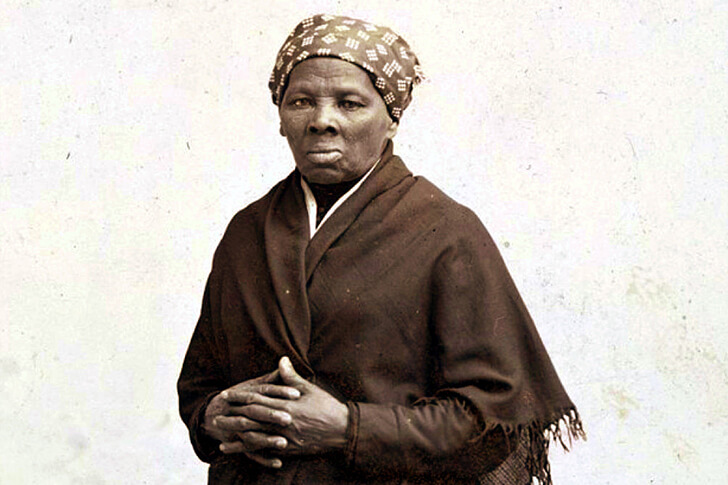
Harriet Tubman was an American abolitionist, humanitarian, and armed scout and spy for the Union Army during the American Civil War. She is best known for her work as a "conductor" on the Underground Railroad, a network of secret routes and safe houses used by enslaved African Americans to escape to freedom in the North.
Tubman made 13 missions to rescue approximately 70 enslaved people, including family and friends. Her bravery, leadership, and unwavering commitment to the abolitionist movement make her a great historical figure. Tubman's legacy continues to inspire generations and her contributions to the fight for freedom and equality have left a lasting impact on American history.
Butch Cassidy
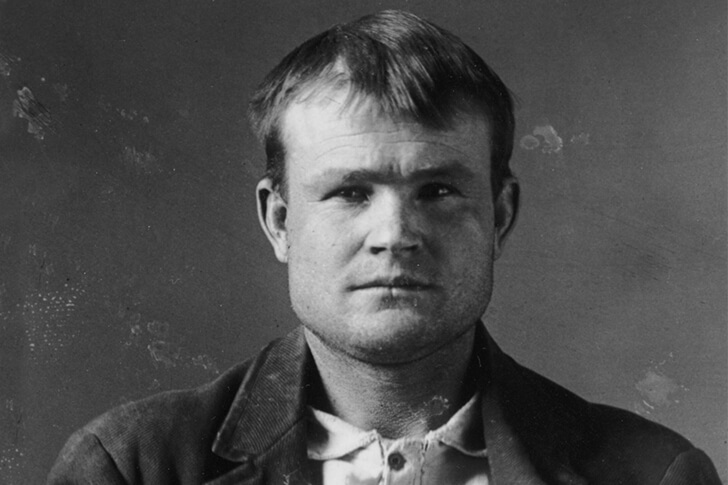
Butch Cassidy, born Robert LeRoy Parker, was an American outlaw who lived from 1866 to 1908. He is best known for his leadership of the Wild Bunch, a group of outlaws that robbed banks and trains throughout the American West during the late 19th century. Cassidy's greatest accomplishment was his successful escape from law enforcement, which earned him a reputation as a skilled and elusive criminal.
However, he was also known for his charismatic personality and his tendency to only target wealthy institutions. His legacy has been romanticized in popular culture and his name has become synonymous with the American outlaw.
Billy The Kid
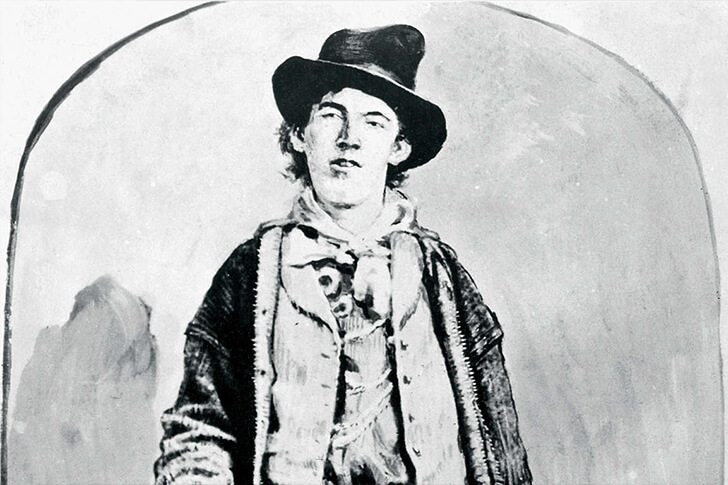
Billy the Kid, whose real name was William H. Bonney, is a notorious figure from the American Old West. He gained notoriety for his criminal activities, including cattle rustling, gunfights, and murders, and was eventually gunned down by Sheriff Pat Garrett in 1881 at the age of 21.
Despite his brief and violent life, Billy the Kid has captured the imagination of many through popular culture, including books, movies, and songs. He is often portrayed as a symbol of rebellion against authority and a charismatic outlaw. While his actions were certainly not admirable, he has become an iconic figure in American history and a reminder of the Wild West era.
Hellen Keller
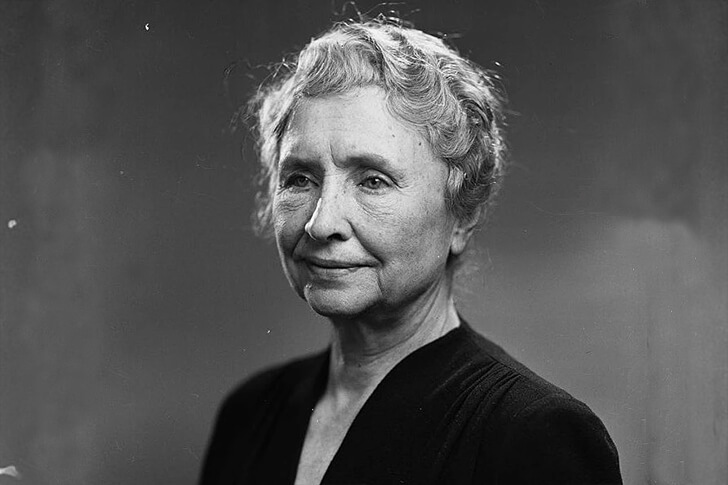
Helen Keller was a remarkable American author, political activist, and lecturer who overcame significant obstacles to become a respected and revered historical figure. She was born in 1880 in Alabama, USA, and lost both her sight and hearing as a toddler due to a severe illness.
Despite this, she went on to achieve numerous accomplishments, including graduating from college, becoming a prolific writer, and advocating for the rights of people with disabilities. Keller's story of perseverance and determination in the face of adversity has inspired generations and served as a symbol of hope and possibility for people around the world.
Jack London
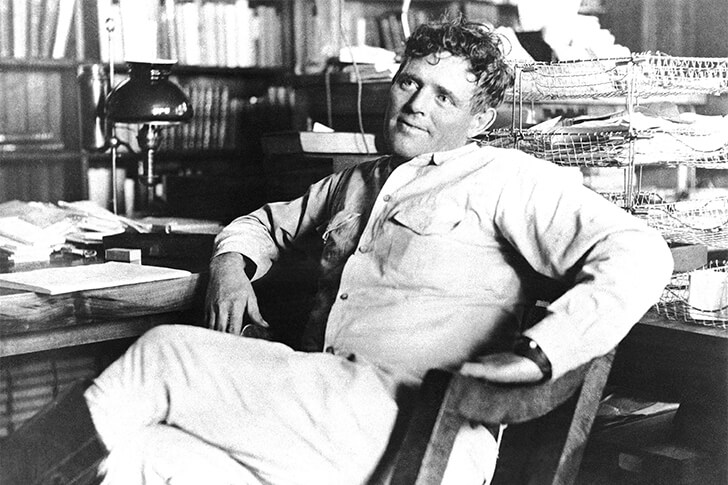
Jack London was an American writer who became famous for his adventure novels and short stories that were set in the Klondike Gold Rush era. He wrote classics such as "The Call of the Wild," "White Fang," and "Martin Eden," which are still read and appreciated today. London was also a prolific journalist and activist, advocating for workers' rights, socialism, and environmental conservation.
He was a passionate and charismatic figure, often living his life on the edge, seeking out new experiences and adventures. London's writing and life story have inspired generations of readers and writers, making him an important historical figure in American literature and social movements.
Calamity Jane
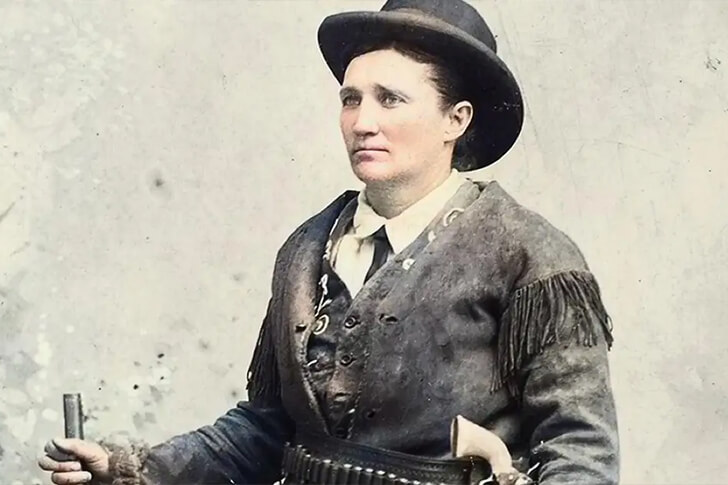
Calamity Jane, whose real name was Martha Jane Canary, was a legendary figure of the American Old West. She gained notoriety for her adventurous spirit and her skills as a sharpshooter, horsewoman, and scout. Jane was known for her rough-and-tumble lifestyle, often dressing in men's clothing and taking on jobs that were typically reserved for men.
Her most notable achievement was serving as a scout for the U.S. Army during the Sioux Wars, where she earned respect and admiration for her bravery and fighting skills. Calamity Jane remains an iconic figure in American history, symbolizing the independent and adventurous spirit of the Wild West.
John “Johnny Appleseed” Chapman
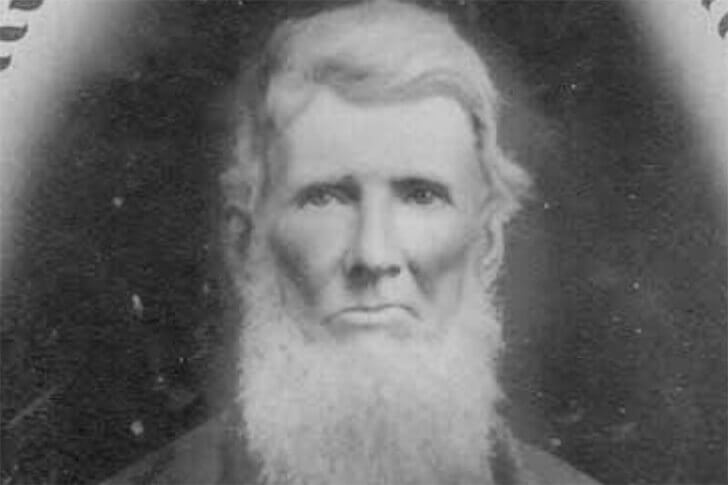
John Chapman, better known as Johnny Appleseed, was an American pioneer and folk hero who became famous for his extensive planting of apple trees across the Midwest in the late 18th and early 19th centuries. He is remembered for his kindness, generosity, and his commitment to conservation and sustainability.
Chapman's efforts to cultivate and distribute apple trees helped to expand agriculture in the region, providing a vital source of food and income for settlers. His legacy has endured through popular culture, including songs, books, and films, which celebrate his life and contributions. Johnny Appleseed remains an enduring symbol of American folklore and environmental stewardship.
Leo Tolstoy
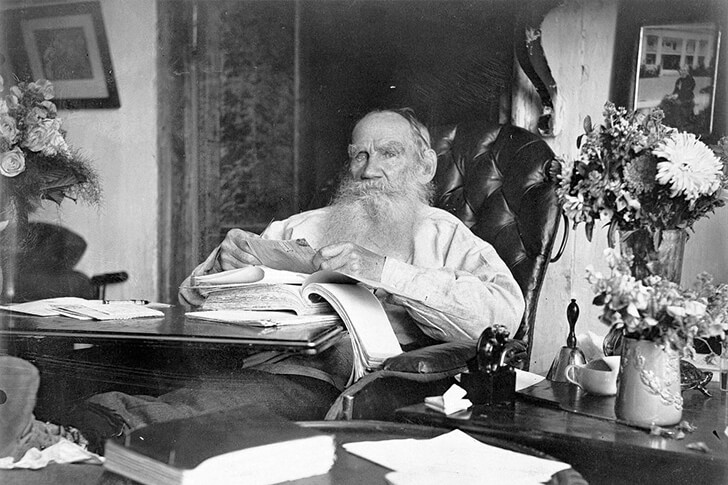
Leo Tolstoy was a renowned Russian author, philosopher, and social activist who lived from 1828 to 1910. He is widely regarded as one of the greatest novelists of all time, having penned masterpieces such as "War and Peace" and "Anna Karenina."
In addition to his literary achievements, Tolstoy was also a committed pacifist and advocate for nonviolent resistance, inspiring figures such as Mahatma Gandhi and Martin Luther King Jr. with his philosophy of moral and spiritual progress. Tolstoy's enduring legacy lies in his ability to capture the complexities of human nature and engage with timeless questions of morality and ethics, making him a truly remarkable figure in history.
James K. Polk
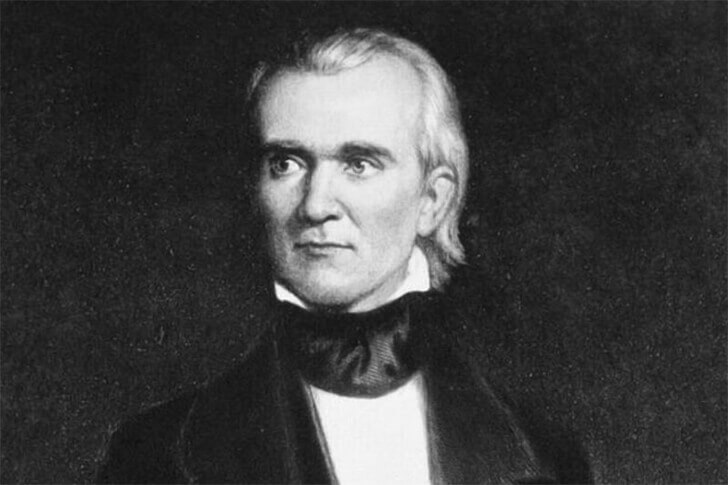
James K. Polk was the 11th President of the United States, serving from 1845 to 1849. He is known for his ambitious agenda, which included the expansion of the United States through the annexation of Texas, the settlement of the Oregon boundary dispute with Great Britain, and the acquisition of California and other territories from Mexico in the Mexican-American War.
Polk's leadership and determination in achieving these goals helped to shape the United States into the country it is today. He is also remembered for his advocacy of the principle of Manifest Destiny, which asserted that the United States was destined to expand its influence and territory across the continent.
Grand Duchess Anastasia Nikolaevna
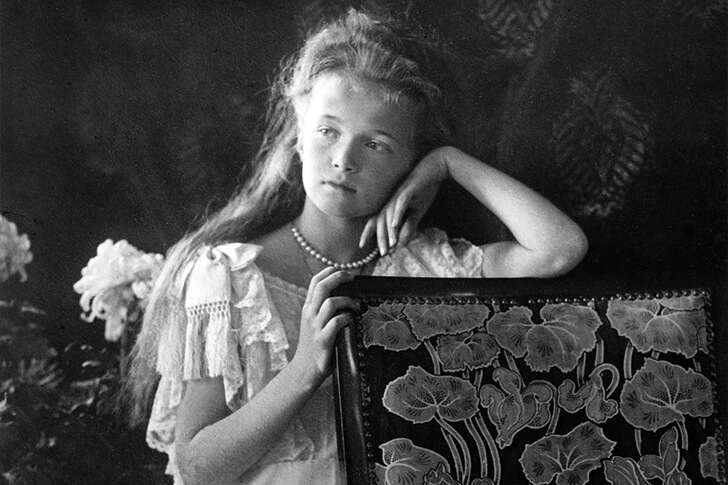
Grand Duchess Anastasia Nikolaevna was the youngest daughter of Tsar Nicholas II of Russia, the last Russian Emperor, and his wife Alexandra. Nikolaevna, along with her family, was tragically executed by the Bolsheviks during the Russian Revolution in 1918, making her a symbol of the tragedy and upheaval of that era.
Over the years, there were numerous rumors and claims of her survival, which added to her enduring legacy and mythos. Her story has been the subject of numerous books, movies, and other works of art, making her an important historical figure and cultural icon. She represents not only the fate of the Romanovs but also the impact of revolution and political turmoil on the individual lives of those caught in its wake.
Arthur Wellesley, 1st Duke Of Wellington
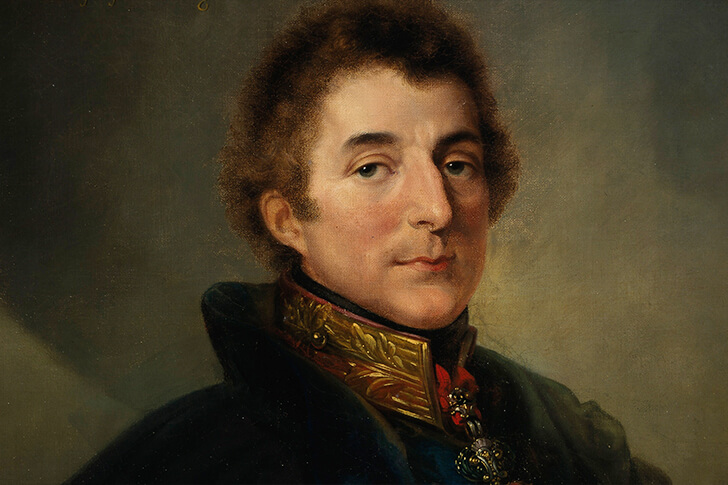
Arthur Wellesley, 1st Duke of Wellington was a British military leader and statesman who played a significant role in the history of Europe. He served as Prime Minister of the United Kingdom from 1828 to 1830 and was known for his victories against Napoleon Bonaparte in the Peninsular War, culminating in the Battle of Waterloo in 1815.
Wellington was also involved in several political reforms, including Catholic Emancipation, which granted Catholics the right to sit in Parliament. His contributions to the military and politics of Britain have made him a notable figure in history, and he remains a celebrated figure in the United Kingdom and around the world.
